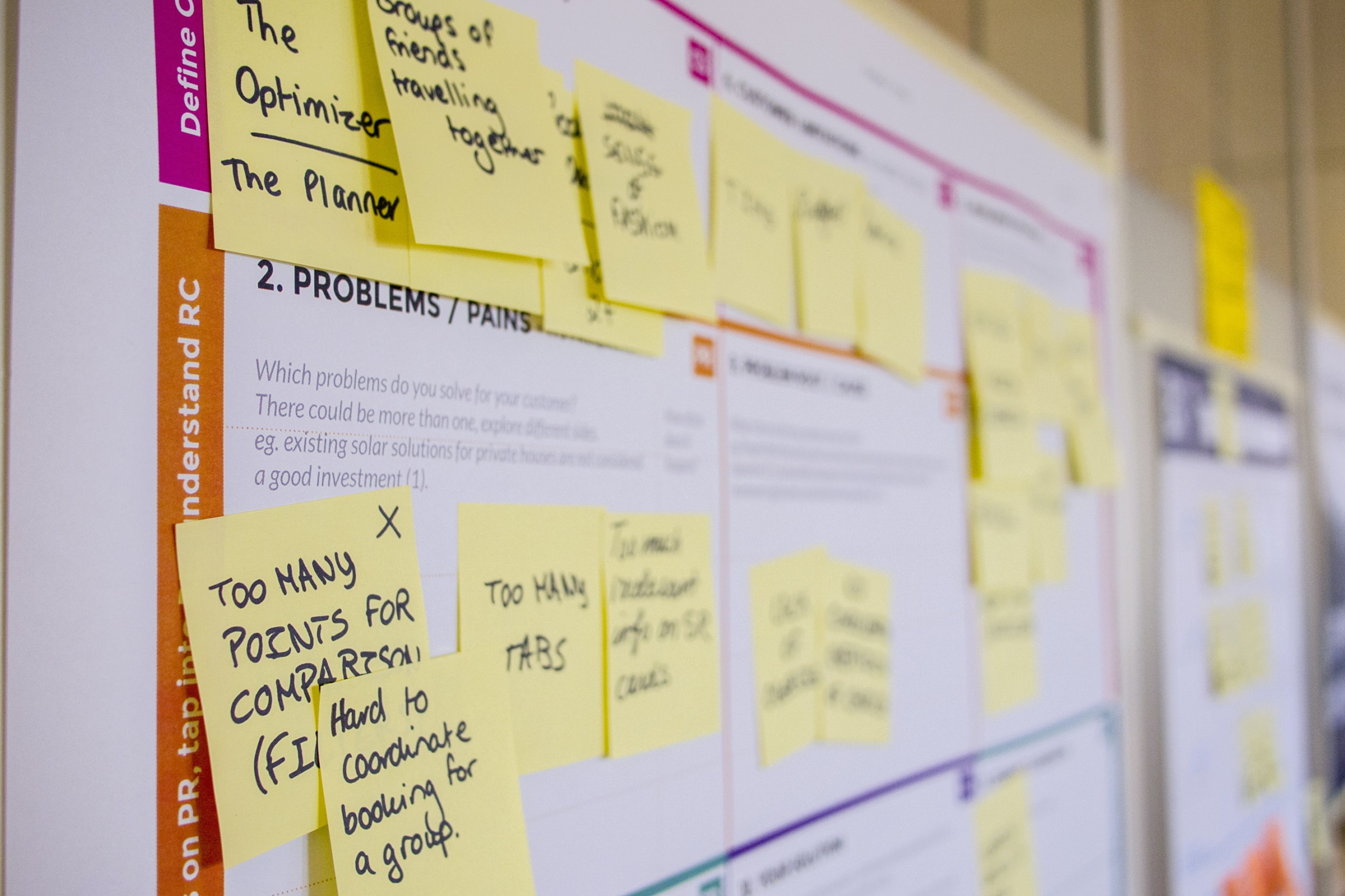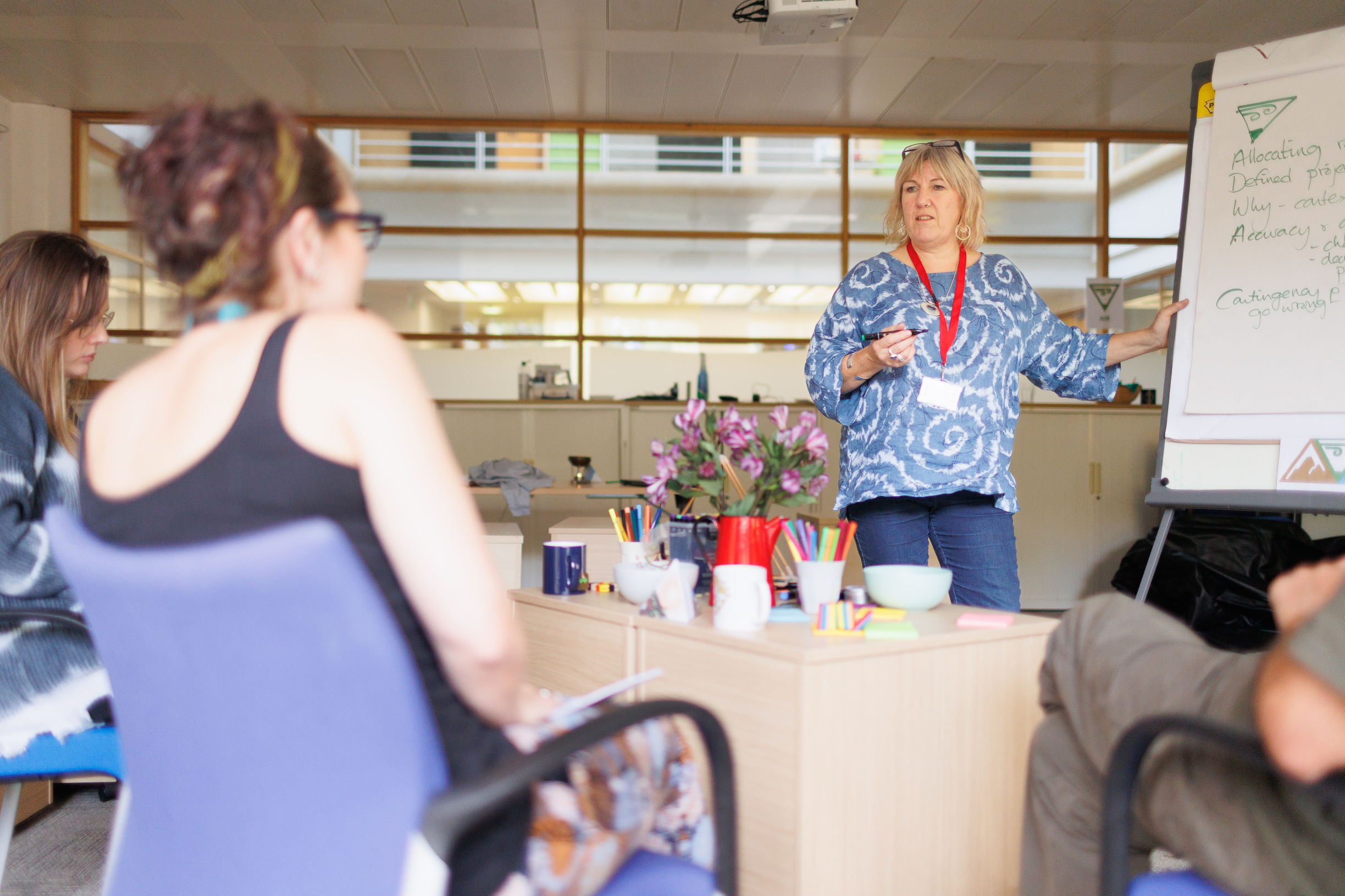
Table of Contents
As we embark on the fascinating journey of exploring the role of a Critical Thinking Trainer, we cannot help but feel a surge of excitement. The prospect of unlocking the true potential of analytical skills and shaping minds to think critically fills our hearts with passion and dedication. A Critical Thinking Trainer serves as a beacon of intellectual enlightenment, guiding individuals towards a higher level of cognitive prowess. With enthusiasm and a profound sense of purpose, they step into the realm of education, ready to ignite the flames of curiosity and open minds to new possibilities. In the realm of analytical thinking, the Critical Thinking Trainer dons the role of a visionary artist, sculpting thoughts and ideas with the precision of a master craftsman. Emotions of inspiration and creativity dance within them as they mould raw intellect into refined and well-structured arguments. The Trainer’s genuine belief in the power of critical thinking sparks an infectious enthusiasm within their learners. With every interaction, they kindle a fiery passion for knowledge and inquiry, fueling the desire to delve deeper into the world of analytical exploration. Like a seasoned storyteller, the Critical Thinking Trainer weaves narratives of logical reasoning, captivating hearts and minds alike. The journey of analytical development becomes an enthralling tale, evoking emotions of wonder and awe.

Amidst the intellectual challenges and moments of discovery, the trainer embraces empathy and understanding. They recognize that learning is a deeply personal experience, and the emotions of their students are treated with utmost care and respect. Determination fills the trainer’s heart as they navigate through obstacles that may hinder the growth of analytical skills. They persistently inspire resilience in their students, encouraging them to embrace failure as a stepping stone towards mastery. The role of a Critical Thinking Trainer is not just about imparting knowledge; it is a dance of mentorship and guidance. With a nurturing touch, they cultivate an environment where individuals can blossom into confident critical thinkers, ready to face the challenges of the world. Experiencing the transformation of their learners fills the trainer’s soul with immense pride and joy. The emotional connection forged between the trainer and their students is a testament to the profound impact of analytical development. In the realm of analytical exploration, the trainer becomes a trusted ally, a source of inspiration, and a catalyst for growth. The emotional bond that forms within the classroom fosters a sense of camaraderie, with students supporting each other in their quest for intellectual excellence.
As the journey draws to a close, the trainer feels a bittersweet mix of emotions – a sense of accomplishment in witnessing the growth of their students and a longing to continue fostering the spirit of critical thinking in future learners.
The world hungers for analytical minds, and the Critical Thinking Trainer emerges as a warrior of enlightenment, armed with knowledge and empathy, ready to nurture the next generation of brilliant thinkers. In conclusion, the role of a Critical Thinking Trainer is one of profound significance and emotional depth. With passion, dedication, and unwavering belief in the power of critical thinking, they become beacons of intellectual transformation, shaping minds that will undoubtedly leave an indelible mark on the world. As the Critical Thinking Trainer witnesses the metamorphosis of their students into astute analysts of information, an overwhelming sense of fulfillment washes over them. The joy of seeing young minds break free from the shackles of conformity and embrace independent thought is incomparable. Every “aha” moment, every spark of insight, and every glimmer of intellectual curiosity reinforces their belief in the transformative power of critical thinking.Yet, the journey of a Critical Thinking Trainer is not without its challenges. Doubt and uncertainty may occasionally creep in, but these moments are swiftly swept away by an unwavering passion for their craft. With an optimistic heart, they view challenges as opportunities to refine their teaching methods and adapt to the unique needs of each learner.
In the classroom, emotions are interwoven with intellect, creating a dynamic tapestry of learning experiences. Laughter and camaraderie create a warm and welcoming atmosphere where students feel safe to explore ideas without fear of judgment. The trainer’s empathy allows them to recognize the diverse perspectives and life experiences that shape each individual’s analytical journey. Beyond the confines of the classroom, the impact of a Critical Thinking Trainer extends far and wide. As their students venture into the world armed with sharpened analytical skills, they radiate a ripple effect of positive change. The trainer’s heart swells with pride knowing that they have contributed to nurturing not only critical thinkers but also compassionate and informed citizens of the world. In conclusion, the role of a Critical Thinking Trainer transcends the boundaries of traditional education. It is a vocation filled with emotion, dedication, and the unyielding belief in the potential of every learner. With boundless enthusiasm, they embark on a mission to empower minds, foster intellectual courage, and ignite a lifelong love affair with the art of critical thinking. Their impact goes beyond developing analytical skills; it shapes the very fabric of society, creating a future where reason, empathy, and wisdom intertwine harmoniously.

As educators and trainers, we embark on a heartfelt journey to empower minds with the transformative power of critical thinking. Filled with emotions of passion and dedication, we recognize that nurturing this essential skill is key to preparing individuals for success in an ever-changing world. Through effective strategies for critical thinking training and development, we kindle the flame of curiosity and ignite the spark of independent thought in learners. At the heart of critical thinking lies the emotions of curiosity and inquiry. We encourage learners to question assumptions, explore diverse perspectives, and seek deeper understanding. By cultivating an inquisitive mindset, we lay the foundation for a learning journey that transcends boundaries and challenges convention. Active engagement stands as a pillar of effective critical thinking training. Embracing emotions of enthusiasm and energy, we design interactive activities, debates, and problem-solving scenarios that captivate learners’ minds. The art of promoting reflection and metacognition fills us with a profound sense of fulfillment. Emotions of introspection and self-awareness guide us as we encourage learners to analyze their thought processes and learning strategies.
Through reflection, learners gain insights into their cognitive strengths and areas for improvement, making their critical thinking practice more intentional and effective. Effective critical thinking training involves the skill of guiding learners in information evaluation and source analysis. With emotions of discernment and skepticism, we teach learners to distinguish credible sources from misinformation. This skill equips them to navigate the vast sea of information in the digital age, fostering a well-informed and discerning mindset. Effective strategies for critical thinking training also involve the emotions of patience and flexibility in guiding learners through the process of developing their analytical skills. Recognizing that critical thinking is a gradual and continuous journey, we provide a supportive and non-judgmental environment where learners can explore ideas and thoughts at their own pace.
Embracing the emotions of creativity and innovation, we encourage learners to think outside the box. By exploring diverse problem-solving approaches and brainstorming sessions, we challenge learners to stretch their cognitive boundaries, opening new pathways for innovative solutions. The heart of critical thinking training lies in nurturing learners’ ability to draw connections between seemingly unrelated concepts and ideas. With emotions of insight and interconnectedness, we guide learners in recognizing patterns and relationships, enhancing their ability to make informed decisions and solve complex problems. Effective critical thinking training incorporates the emotions of perseverance and resilience. We recognize that developing critical thinking skills takes time and effort. As learners encounter challenges, we provide support and encouragement, inspiring them to persist and grow. Embracing emotions of open-mindedness and empathy, we foster a culture of respectful discourse and diverse perspectives. By engaging in respectful debates and discussions, learners learn to consider alternative viewpoints and broaden their understanding of complex issues. Effective critical thinking training also involves the skill of facilitating collaborative learning experiences. With emotions of camaraderie and cooperation, we encourage learners to work in teams, leveraging collective intelligence and diverse insights to arrive at comprehensive and innovative solutions. Embracing the emotions of adaptability and responsiveness, we adjust our training methods to cater to diverse learning styles and preferences. From visual aids to hands-on exercises, we offer a range of instructional approaches that resonate with different learners, ensuring that everyone can actively engage in the critical thinking process.
The heart of critical thinking training lies in the belief that every individual has the capacity for independent thought and analysis. Emotions of encouragement and empowerment drive us to celebrate learners’ progress and growth, fostering a sense of confidence and autonomy in their critical thinking journey. Embracing the emotions of flexibility and adaptability, we adjust our training methods to meet the unique needs and learning styles of learners. By personalizing critical thinking training, we create an environment where every individual can thrive and excel. Effective critical thinking training involves the skill of posing thought-provoking questions that challenge learners to think critically and analytically. With emotions of curiosity and intrigue, we engage learners in exploring complex issues, encouraging them to delve deeper into the underlying principles and assumptions. The heart of critical thinking training lies in instilling a sense of responsibility and ethical reasoning. Emotions of integrity and moral compass guide us as we prompt learners to consider the ethical implications of their decisions and actions. Embracing emotions of resilience and resourcefulness, we model and encourage problem-solving strategies that enable learners to overcome obstacles and navigate challenges. This skill equips them with the confidence to tackle complex problems with a sense of empowerment. The heart of effective critical thinking training lies in encouraging learners to apply their skills to real-world scenarios. Emotions of relevance and practicality guide us as we design case studies and problem-solving tasks that mirror the challenges learners may encounter in their personal and professional lives.
Effective critical thinking training involves the emotions of adaptability and grace in guiding learners through their intellectual journey. As learners encounter setbacks, we remain patient and supportive, understanding that growth and learning are iterative processes. The heart of critical thinking training lies in fostering a lifelong commitment to intellectual curiosity and continuous learning. Emotions of passion and enthusiasm fuel our efforts to inspire learners to be perpetual seekers of knowledge and wisdom. Embracing the emotions of clarity and simplicity, we communicate complex concepts in accessible and understandable ways. This approach empowers learners to grasp challenging topics, promoting a sense of confidence in their critical thinking abilities. Effective critical thinking training involves the skill of nurturing learners’ ability to analyze and evaluate arguments. With emotions of discernment and precision, we teach learners to identify logical fallacies and weak reasoning, empowering them to make informed judgments. Effective critical thinking training also involves the emotions of enthusiasm and encouragement in celebrating learners’ intellectual achievements. We recognize and acknowledge their growth and progress, instilling in them a sense of accomplishment and motivation to continue honing their critical thinking skills. Embracing the emotions of adaptability and lifelong learning, we continuously update and evolve our critical thinking training strategies to align with emerging trends and challenges. As the world evolves, so too must our approach to nurturing and developing learners’ analytical abilities.
Promoting critical thinking in the classroom, my dedicated instructors, is an unwavering commitment to nurturing young minds. We have the extraordinary opportunity to shape future leaders who can question, reason, and solve complex problems. Embracing a learner-centered approach, my empathetic mentors, tailors instruction to our students’ unique needs. Foster an inclusive and supportive environment where every learner feels encouraged to engage in thoughtful analysis. Cultivating a culture of inquiry, my curious coaches, sparks intellectual curiosity. Encourage students to explore, ask questions, and seek answers, igniting a hunger for knowledge. Challenging conventional wisdom, my innovative trainers, inspires students to think outside the box. Encourage them to question assumptions and embrace diverse perspectives, fostering open-mindedness. Incorporating real-life scenarios and case studies, my practical educators, bridges theory and practice. Present students with authentic problems to solve, enabling them to apply critical thinking skills to real-world situations.

Modeling critical thinking ourselves, my reflective instructors, sets an example for our students. Demonstrate how to approach challenges analytically, showing them the power of logical reasoning. Encouraging intellectual debate and discourse, my eloquent coaches, hones students’ communication skills. Create a safe space for students to express their thoughts and opinions, fostering confident articulation. Developing metacognition in our students, my introspective mentors, empowers them to reflect on their thinking process. Guide them in evaluating their thought patterns, enhancing their self-awareness. Using open-ended questions, my thought-provoking trainers, stimulates critical thinking. Pose queries that challenge students to analyze information, encouraging deeper understanding. Measuring success through students’ ability to analyze and synthesize information, my visionary instructors, focuses on higher-order thinking skills. Assess their capacity to make informed judgments and draw well-supported conclusions.
Infusing creative problem-solving techniques, my imaginative coaches, nurtures students’ innovative thinking. Encourage students to think divergently and devise inventive solutions to complex issues. Fostering a growth mindset in our students, my resilient instructors, nurtures resilience in the face of challenges. Instill the belief that abilities can be developed through dedication and effort, encouraging them to embrace learning opportunities with enthusiasm. Encouraging collaboration and group discussions, my team-oriented mentors, enriches critical thinking. Facilitate cooperative learning experiences that encourage students to learn from and challenge each other’s perspectives. Promoting self-directed learning, my empowering coaches, cultivates independence. Encourage students to take ownership of their learning journey, empowering them to explore areas of personal interest. Integrating technology as a tool for analysis, my tech-savvy educators, enhances critical thinking. Utilize digital resources and interactive platforms to facilitate data analysis and problem-solving. Providing opportunities for experiential learning, my hands-on trainers, deepens critical thinking. Organize field trips, simulations, and hands-on activities to encourage students to apply knowledge in practical settings. Using thought-provoking visuals and multimedia, my creative instructors, amplifies critical thinking. Present information in engaging and visually stimulating ways, sparking curiosity and encouraging further exploration. Encouraging students to identify biases and assumptions, my unbiased coaches, hones their discernment. Guide them in recognizing and evaluating underlying assumptions in information and arguments. Measuring success through students’ ability to analyze ethical dilemmas, my principled educators, cultivates ethical reasoning. Assess their capacity to make morally informed decisions, fostering responsible citizenship. Incorporating reflective journaling, my contemplative trainers, encourages metacognition. Encourage students to record their thought processes, promoting deeper introspection.
Supporting diverse perspectives, my inclusive mentors, celebrates critical thinking from all angles. Create an inclusive classroom where different viewpoints are valued and respected. Empowering students to apply critical thinking beyond the classroom, my visionary instructors, emphasizes real-world impact. Encourage them to address societal issues and contribute positively to their communities. Embracing continuous improvement in our teaching methods, my adaptable coaches, elevates critical thinking training. Stay abreast of new pedagogical approaches and incorporate innovative strategies to meet the changing needs of our students. Using storytelling to present historical and contemporary events, my captivating trainers, connects critical thinking to the human experience. Share narratives that highlight the power of critical thought in shaping the course of history. Promoting the skill of questioning, my inquisitive educators, sparks curiosity. Encourage students to ask probing questions and seek answers beyond the surface level. Creating a safe space for experimentation, my supportive coaches, fosters risk-taking. Encourage students to explore unconventional solutions and embrace failure as a stepping stone to success. Using real-world data analysis, my analytical instructors, strengthens critical thinking skills. Engage students in analyzing data sets and drawing conclusions, equipping them with practical problem-solving abilities. Measuring success through students’ ability to communicate ideas effectively, my articulate trainers, emphasizes clear expression. Assess their capacity to articulate complex thoughts and arguments coherently. Encouraging a global perspective, my inclusive mentors, broadens critical thinking horizons. Expose students to diverse cultures and worldviews, fostering a deeper understanding of interconnectedness. Promoting a growth mindset in our students, my nurturing educators, celebrates resilience. Praise their efforts to tackle challenging problems, motivating them to embrace continuous learning.
Incorporating debate and argumentation exercises, my persuasive coaches, enhances critical thinking. Encourage students to construct well-reasoned arguments and defend their viewpoints. Emphasizing the importance of information literacy, my discerning instructors, fortifies critical thinking. Teach students to evaluate sources and discern reliable information from misinformation. Encouraging students to apply critical thinking to their personal lives, my caring coaches, nurtures self-awareness. Guide them to make thoughtful decisions and choices that align with their values. Fostering a sense of wonder and curiosity, my awe-inspiring instructors, fuels students’ passion for learning. Engage students in intriguing topics and encourage them to explore beyond the curriculum. Promoting active reading and critical analysis, my insightful coaches, deepens comprehension. Teach students to question texts and engage in close reading to extract meaningful insights. Incorporating real-time problem-solving, my agile trainers, prepares students for the challenges of the future. Create scenarios where students must think on their feet and respond to rapidly changing circumstances. Using project-based learning, my hands-on educators, develops critical thinking in context. Guide students through extended projects that require research, analysis, and synthesis of information. Celebrating perseverance and tenacity, my determined mentors, fosters resilience. Encourage students to persist in the face of obstacles and use setbacks as learning opportunities. Promoting interdisciplinary thinking, my well-rounded instructors, nurtures holistic understanding. Create connections between various subjects, allowing students to see the bigger picture. Incorporating peer review and constructive feedback, my supportive coaches, refines critical thinking skills. Teach students to give and receive feedback with empathy and respect. Emphasizing the role of critical thinking in problem-solving, decision-making, and innovation, my visionary instructors, inspires purposeful learning. Demonstrate to students the real-world relevance of their critical thinking skills.

Becoming a critical thinking trainer is a journey that demands a unique set of key skills and qualifications. Aspiring trainers embarking on this path must possess a passion for empowering individuals to think critically, fostering their curiosity, and challenging conventional wisdom. One of the most crucial qualifications for a critical thinking trainer is a strong academic background, preferably with a degree in a relevant field such as philosophy, psychology, or education. This foundational knowledge equips trainers with the theoretical understanding and frameworks necessary to guide their learners through the intricacies of critical thinking. Beyond academic qualifications, effective critical thinking trainers possess exceptional communication skills. They must be able to articulate complex concepts in a clear and engaging manner, sparking curiosity and encouraging active participation. Empathy is another essential skill, allowing trainers to understand their learners’ individual perspectives and tailor their approach accordingly. By recognizing the unique challenges and strengths of each participant, trainers can provide personalized guidance and support, thus fostering a positive and empowering learning environment.
Critical thinking trainers should be adept at designing and facilitating interactive and thought-provoking learning experiences. They must employ various instructional techniques, such as Socratic questioning, debates, and real-world problem-solving scenarios, to stimulate learners’ analytical and evaluative skills actively. Flexibility and adaptability are equally crucial attributes, enabling trainers to adjust their strategies based on the evolving needs and dynamics of their learners. Inspirational leadership is a defining quality of an exceptional critical thinking trainer. They lead by example, demonstrating the principles of critical thinking in their own practices, decision-making, and problem-solving. Their passion for continuous learning and intellectual growth is infectious, inspiring learners to embark on their own journeys of exploration and discovery.
Empowering learners to think critically involves nurturing their resilience and fostering a growth mindset. A great critical thinking trainer encourages learners to embrace challenges and view setbacks as opportunities for growth. They celebrate the process of learning, instilling confidence and self-belief in their learners’ abilities to tackle complex issues and make informed decisions. Lastly, a genuine commitment to fostering a community of critical thinkers is a hallmark of an exceptional trainer. By creating a supportive and collaborative learning environment, trainers cultivate a sense of camaraderie among learners, facilitating peer-to-peer learning and constructive feedback. As critical thinking is a lifelong pursuit, trainers must embody the values of curiosity, intellectual rigor, and open-mindedness. By cultivating these key skills and qualifications, critical thinking trainers become catalysts for transformation, guiding individuals on a profound journey of self-discovery, intellectual growth, and empowered decision-making. The impact of these trainers extends far beyond the classroom, shaping future leaders, innovators, and changemakers who can navigate complex challenges with clarity and wisdom. A critical thinking trainer’s role is deeply significant, shaping the minds of individuals to become intellectually curious, analytical, and capable of questioning the world around them. To excel in this impactful profession, trainers must possess a profound passion for the pursuit of knowledge and the desire to ignite that same fire within their learners. Beyond academic qualifications, a successful critical thinking trainer embodies a combination of skills and qualities that elevate their teaching to extraordinary heights.
One of the key skills critical thinking trainers must have is the ability to foster a supportive and inclusive learning environment. They create a space where learners feel comfortable expressing their ideas and thoughts, free from judgment. This skill requires a delicate balance of humility and authority, allowing trainers to guide discussions without imposing their views and encouraging a diversity of perspectives to enrich the learning experience. Empathy and active listening are indispensable qualities that enable trainers to understand the unique challenges and needs of their learners. By empathizing with their struggles and celebrating their successes, trainers build trust and rapport with their students, nurturing a sense of belonging and fostering a safe space for intellectual exploration. A critical thinking trainer must also possess strong problem-solving skills, which they can model and impart to their learners. They present complex issues and scenarios that require analytical thinking, encouraging students to dissect problems, identify potential solutions, and evaluate the most effective course of action. Demonstrating problem-solving in action, trainers inspire learners to approach challenges with resilience and creativity. Adaptability is another vital skill for critical thinking trainers, especially in the ever-changing landscape of education and technology. They must embrace new teaching methods, digital tools, and innovative approaches to keep their training relevant and engaging. By staying open to learning themselves, trainers set an example for learners to embrace change and remain curious about the world.
As a critical thinking trainer, fostering a growth mindset in learners is crucial. They encourage a belief in the power of effort and perseverance, emphasizing that intelligence and abilities can be developed through dedication and hard work. This mindset empowers learners to embrace challenges as opportunities for growth and to view mistakes as valuable learning experiences. Additionally, a deep commitment to continuous learning is fundamental for a critical thinking trainer. Engaging in ongoing professional development, attending workshops, and staying updated with the latest research in the field of critical thinking enables trainers to enrich their teaching and remain at the cutting edge of their craft. Above all, a critical thinking trainer’s emotional intelligence plays a pivotal role in their effectiveness. They intuitively understand and connect with learners on an emotional level, motivating and inspiring them to be curious, independent thinkers. By creating an emotional bond with their students, trainers foster a genuine enthusiasm for learning, transforming the classroom into a space of discovery and empowerment. In conclusion, the role of a critical thinking trainer demands a unique blend of skills and qualities that go beyond academic qualifications. Empathy, active listening, problem-solving, adaptability, and a growth mindset are among the key skills that elevate trainers to excel in their profession. By cultivating a supportive and inclusive learning environment, encouraging a passion for continuous learning, and modeling critical thinking in action, these trainers ignite the flame of curiosity in their learners, empowering them to become independent thinkers and change-makers in the world. The impact of a skilled and passionate critical thinking trainer is immeasurable, shaping the future by shaping the minds of the next generation.
The ability to analyse, evaluate, and synthesise information empowers individuals to make informed decisions and solve complex problems. However, cultivating such skills requires deliberate effort and proper training. This article delves into the realm of designing engaging critical thinking training programs that not only equip participants with essential cognitive abilities but also ignite their passion for learning.
The Urgent Need for Critical Thinkers: In a society brimming with misinformation, political polarisation, and challenges on a global scale, the need for critical thinkers is undeniable. Far too often, individuals fall prey to the echo chambers of biassed media, confirmation biases, and cognitive dissonance. These obstacles hinder open-mindedness and hinder the development of analytical skills. We must address this void and focus on designing training programs that foster a generation of critical thinkers. Creating an Emotional Connection: Emotion plays a significant role in learning and memory retention. To design effective critical thinking training programs, educators must establish an emotional connection with participants.

By presenting real-world scenarios that touch on pressing issues, learners can see the relevance and practicality of the skills they are acquiring. Engaging personal stories or testimonials from individuals who have benefited from critical thinking can evoke empathy and inspire the desire to make a difference. Fostering a Safe and Inclusive Environment: An engaging critical thinking program should cultivate an atmosphere of safety and inclusivity. Participants need to feel free to express their thoughts without fear of ridicule or judgement. Facilitators should encourage open dialogue and respectful debate, where diverse perspectives are embraced and celebrated. A non-threatening environment encourages participants to challenge their assumptions and broaden their horizons.
Utilising Interactive Techniques: Static lectures and monotonous presentations do little to spark enthusiasm for critical thinking. Instead, trainers should incorporate interactive techniques to stimulate engagement. Group discussions, role-playing exercises, simulations, and case studies allow learners to actively apply critical thinking skills in real-life scenarios. Gamification can also add an element of fun, turning learning into a rewarding and enjoyable experience. Encouraging Questioning: The heart of critical thinking lies in questioning assumptions and seeking evidence-based answers. Therefore, a well-designed training program should encourage participants to ask questions freely. Whether challenging a premise, seeking clarification, or exploring alternative viewpoints, the art of questioning is the gateway to deeper understanding and innovative problem-solving. Integrating Technology and Multimedia: In the digital age, technology has become an indispensable tool for learning. Integrating multimedia resources, such as videos, interactive quizzes, and online research exercises, adds variety to the training program. These resources not only enhance engagement but also appeal to different learning styles, accommodating both auditory and visual learners. Promoting Continuous Learning: Designing an effective critical thinking program extends beyond the workshop itself. To foster a culture of continuous learning, post-training resources and opportunities for further development are essential. Providing access to relevant literature, webinars, or online forums allows participants to continue refining their skills long after the program concludes. Emphasising Ethical Considerations: Critical thinking is a powerful tool that must be wielded responsibly. Emphasising ethical considerations throughout the training program helps participants understand the consequences of their decisions and actions. By instilling ethical values, we ensure that critical thinking is not misused or directed towards harmful ends.
In conclusion, the world urgently needs skilled critical thinkers who can navigate the complexities of the modern era. Designing engaging critical thinking training programs is not merely about teaching a set of skills; it is about nurturing a mindset that seeks truth, embraces diversity, and challenges the status quo. By creating an emotional connection, fostering inclusivity, employing interactive techniques, encouraging questioning, integrating technology, promoting continuous learning, and emphasising ethics, these programs can inspire a generation of passionate and adept critical thinkers who will shape a brighter and more enlightened future.

Assessing critical thinking skills is a vital aspect of effective training, evoking emotions of significance, relevance, and a profound desire for meaningful learning outcomes. Trainers play a pivotal role in developing participants’ ability to think critically and analytically, enabling them to tackle complex challenges with confidence. One effective method for assessing critical thinking skills is through interactive exercises and problem-solving scenarios, evoking emotions of engagement, curiosity, and a profound desire for practical application. Trainers can present participants with real-world situations, encouraging them to analyze information, evaluate options, and make informed decisions. Another valuable tool for assessing critical thinking is the use of reflective journals and self-assessment, evoking emotions of introspection, self-awareness, and a profound desire for personal growth. By encouraging participants to document their thought processes and assess their problem-solving strategies, trainers can foster metacognition and enhance their critical thinking skills. Incorporating group discussions and debates is another powerful approach to assess critical thinking skills, evoking emotions of collaboration, open-mindedness, and a profound desire for constructive dialogue. Trainers can observe how participants present arguments, respond to counterarguments, and engage in respectful exchanges of ideas.
Assessing critical thinking also involves using quizzes and tests that measure participants’ ability to analyze information and draw reasoned conclusions, evoking emotions of determination, focus, and a profound desire for mastery. These assessments can be used to identify areas for improvement and tailor future training sessions accordingly. Trainers can also utilize case studies and real-life scenarios as assessment tools, evoking emotions of relevance, authenticity, and a profound desire for practical learning. Participants can apply critical thinking skills to analyze complex situations and propose viable solutions, showcasing their ability to think critically in a professional context. Furthermore, observation and feedback are essential for assessing critical thinking skills, evoking emotions of support, encouragement, and a profound desire for constructive guidance. Trainers can observe participants’ interactions, problem-solving approaches, and decision-making processes, providing personalized feedback to foster continuous improvement.
Using rubrics and scoring guides is a valuable method for objectively assessing critical thinking skills, evoking emotions of fairness, transparency, and a profound desire for clarity. These tools help trainers provide consistent evaluations and specific feedback, facilitating participants’ understanding of their performance. Additionally, role-playing exercises can serve as effective assessment tools, evoking emotions of empathy, adaptability, and a profound desire for experiential learning. Trainers can assign different roles to participants and evaluate their ability to think critically and respond to challenging situations. Utilizing technology, such as online quizzes and simulations, is another innovative way to assess critical thinking skills, evoking emotions of excitement, engagement, and a profound desire for digital literacy. These tools offer immediate feedback and enable trainers to track participants’ progress over time.
Creating authentic assessment tasks that mimic real-world challenges is crucial for evaluating critical thinking skills, evoking emotions of motivation, relevance, and a profound desire for practical application. Trainers can design activities that require participants to think critically, analyze data, and propose solutions that align with professional contexts. In conclusion, assessing critical thinking skills requires a multifaceted approach that incorporates interactive exercises, self-assessment, group discussions, quizzes, case studies, observation, feedback, rubrics, role-playing, and technology. By employing these methods and tools, trainers can gain valuable insights into participants’ critical thinking abilities and tailor their training strategies to nurture and enhance these essential skills. Assessing critical thinking is not just about testing knowledge but rather encouraging participants to develop their analytical and problem-solving capabilities, empowering them to thrive in a fast-paced and complex world.
As a critical thinking trainer, I firmly believe that integrating technology into training sessions can significantly enhance the learning experience and empower participants to develop their critical thinking abilities. The fusion of technology and critical thinking not only fosters engagement but also allows for a more personalized and interactive approach to learning. One of the primary advantages of using technology in critical thinking training is the wealth of information and resources readily available. Furthermore, technology facilitates real-time collaboration and communication among participants, breaking down geographical barriers and fostering a global learning community. Through these collaborative efforts, individuals can learn from one another’s unique insights and approaches, enriching the depth of their critical thinking abilities. Integrating technology also opens up innovative learning methodologies, such as gamification and interactive simulations. Gamified critical thinking exercises make the learning process enjoyable and challenging, promoting healthy competition and intrinsic motivation.

As a critical thinking trainer, I am passionate about leveraging technology to accommodate various learning styles and preferences. \Moreover, digital platforms allow for seamless tracking of participants’ progress, allowing me to provide timely feedback and support to help them overcome obstacles and refine their critical thinking skills. While technology enhances critical thinking training, face-to-face interactions and hands-on activities remain invaluable for building rapport, fostering empathy, and promoting a deeper understanding of complex concepts. As a trainer, I ensure that technology complements rather than replaces human connections, creating an inclusive and supportive learning environment.
While embracing technology in critical thinking training, I also acknowledge the importance of addressing potential challenges. Technological barriers, such as limited internet access or technical difficulties, can impede the learning process. To mitigate these challenges, I provide clear instructions and technical support, ensuring that participants can fully engage with the digital components of the training.
In conclusion, integrating technology into critical thinking training sessions is an exciting and transformative approach that harnesses the power of innovation to enhance the learning experience. By leveraging technology, critical thinking trainers can create a dynamic and interactive learning environment that empowers participants to develop essential skills for success in both their personal and professional lives. As a passionate critical thinking trainer, I am committed to utilizing technology responsibly to deliver impactful training that equips participants with the cognitive tools they need to thrive in an increasingly complex and interconnected world.

In the enchanting realm of education, the journey to nurture a culture of critical thinking ignites emotions of enthusiasm and dedication within trainers. As guardians of knowledge, they hold the power to shape the minds of learners, fostering a culture that embraces curiosity, analysis, and creativity. At the heart of nurturing critical thinking lies a burning passion to inspire minds to soar. Embrace the emotions of excitement and anticipation as trainers step into the role of catalysts, setting the stage for a transformative learning experience. Embrace the art of questioning, for it is the key to unlock the door to critical thinking. Encourage learners to embrace the emotions of curiosity and wonder, sparking their thirst for knowledge as they explore the depths of understanding. In the nurturing of a culture of critical thinking, trainers must lead by example. Emotions of authenticity and transparency resonate as trainers model the art of questioning, demonstrating that even the wisest minds are forever seekers of knowledge.
Embrace emotions of patience and understanding, for critical thinking is a journey, not an endpoint. Cultivate an environment where learners feel safe to express their thoughts and embrace vulnerability as they navigate the path to deeper understanding. The power of exploration is a guiding light on this transformative journey. Embrace emotions of excitement and discovery as trainers invite learners to explore diverse perspectives, nurturing a well-rounded approach to critical analysis. Encourage learners to embrace the emotions of resilience and courage, for critical thinking requires the willingness to challenge assumptions and question conventional wisdom. Empower learners to think beyond the surface, to dig deep and unravel the intricacies of complex issues. Embrace emotions of empowerment and pride as learners unveil the brilliance of their own intellect.
Nurturing critical thinking is a journey of collaboration. Embrace emotions of camaraderie and support as trainers foster a sense of community, where learners inspire one another through thoughtful discussions and shared discoveries. Celebrate the beauty of diversity in thought and perspective. Embrace emotions of inclusivity and open-mindedness as trainers create a space where all ideas are welcome, respecting the richness that different minds bring to the table. Embrace emotions of adaptability and innovation, for the world of knowledge is ever-evolving. Encourage learners to embrace the joys of learning beyond the classroom, embracing a lifelong journey of critical inquiry. The pursuit of truth is a noble endeavor. Embrace emotions of integrity and honesty, guiding learners to seek evidence-based conclusions and distinguishing between facts and opinions. Encourage learners to embrace the emotions of empathy and compassion, for critical thinking is not only about analysis but also understanding the human impact of their conclusions.
The power of creativity intertwines with critical thinking, shaping innovative solutions to complex problems. Embrace emotions of inspiration as trainers nurture the creative spirit within learners, propelling them to think outside the box. The journey to nurturing a culture of critical thinking is an emotional testament to the transformative power of education. Embrace the emotions of fulfillment and joy as trainers witness learners evolve into analytical thinkers, ready to face the world with a quest for truth. In the hearts of trainers, the flame of passion burns brightly, knowing that the seeds of critical thinking sown today will blossom into the brilliant minds that shape the world tomorrow. Embrace the emotions of pride and hope as trainers continue to nurture this culture, leaving an indelible mark on the hearts and minds of generations to come.
Welcome to an enlightening exploration of the transformative power of continuous critical thinking training! In this invigorating journey, we delve into the heart of this indispensable skill, where the magic of analysis, reflection, and innovation unfolds. Brace yourself for an emotional revelation of how continuous critical thinking training nurtures the intellect, shapes perspectives, and empowers individuals to conquer challenges with unyielding confidence. Step into the world of critical thinking, where problems become stepping stones to empowerment. Discover how continuous training sharpens your ability to navigate complex challenges with clarity and efficacy. Embrace the exhilaration of overcoming obstacles, witnessing the transformative impact of applying analytical prowess to create innovative solutions.Dive deeper into the realm of critical thinking and witness the enhancement of your problem-solving prowess. Embrace the joy of unraveling intricate challenges, armed with a keen analytical mind and an insatiable curiosity. Through continuous training, discover the art of dissecting complex problems into manageable pieces, paving the way for innovative solutions that defy conventional boundaries.

Embrace the clarity that arises from continuous critical thinking training. As you hone your decision-making prowess, bask in the liberation that accompanies well-informed choices, emancipated from the shackles of uncertainty. Embrace the confidence that blooms from your ability to navigate through intricate decisions with clarity and conviction. Witness the liberation that emerges from astute judgment, propelling you towards a future brimming with confidence and assurance. In the realm of critical thinking, creativity and innovation blossom. Uncover the joy of thinking outside the box, as continuous training fuels the imagination and ignites a passion for novelty. Embrace the inspiration of envisioning a world where possibilities are boundless, and innovative solutions become the hallmark of progress. Effective communication is a beacon in the sea of ideas. Experience how continuous critical thinking training refines your ability to articulate thoughts with clarity and precision. Embrace the power of connection, as your enhanced communication skills bridge the gap between minds, fostering understanding, and inspiring collaboration.
Critical thinking is not limited to individuals; it thrives in a culture that celebrates curiosity and intellectual exploration. Embrace the responsibility of fostering a culture of critical thinking within your organization or community. Witness the transformative impact as critical thinking permeates the collective consciousness, inspiring dynamic collaboration and a shared passion for knowledge. As challenges loom, critical thinking is a steadfast companion that fortifies resilience. Discover how continuous training equips you to navigate through adversity with adaptability and determination. Embrace the strength that arises from confidently tackling obstacles, emerging on the other side with unwavering fortitude. The pursuit of critical thinking is a journey without end. Embrace the joy of lifelong learning as continuous training enriches your quest for knowledge and self-improvement. Witness how each new skill acquired becomes a stepping stone, building a path towards continuous growth and personal development. The spirit of curiosity lies at the heart of critical thinking. Embrace the thrill of unraveling complexities through continuous training, nurturing an analytical mindset that yearns for exploration and understanding. Witness the transformation as curiosity becomes the driving force behind your insatiable quest for knowledge. Critical thinking is a compass that guides us on the path of ethical decision-making. Embrace the power of continuous training in navigating complex ethical dilemmas, where principles and values intertwine. Discover how critical thinking empowers you to make choices that align with your moral compass, fostering integrity and accountability in both personal and professional domains. Experience the triumph of continuous critical thinking training in strategic planning and goal-setting. As you apply analytical acumen to chart your path, witness your aspirations materialize into tangible achievements. Embrace the satisfaction of witnessing dreams transform into reality through focused and deliberate action. In the realm of critical thinking, collaboration and teamwork thrive as cornerstones of success. Embrace the power of continuous critical thinking training in fostering effective communication and cooperation among team members. Discover how critical thinking empowers individuals to contribute their unique perspectives, synergizing efforts to achieve remarkable outcomes. Witness the transformation of group dynamics as critical thinkers unite, turning challenges into opportunities through collective ingenuity and camaraderie. Embrace the joy of witnessing collaborative endeavors flourish, knowing that together, we are bound for greatness.
Amidst a world of perpetual change, adaptability emerges as a priceless asset, empowering individuals to navigate the shifting tides with dexterity and resilience. Embrace the versatility that continuous critical thinking training bestows, allowing you to embrace change with confidence and resilience. Witness the power of adaptability as you navigate uncharted waters and emerge stronger from every transition. The future extends its inviting hand, brimming with uncharted possibilities awaiting discovery. Embrace the journey of continuous critical thinking, as it equips you to embrace the unknown with anticipation and courage. Witness the untapped potential that lies ahead, ready to be unlocked by your unwavering commitment to lifelong learning and intellectual exploration. Embrace the limitless potential of continuous critical thinking training as it propels you forward, ready to embrace the unknown with courage and optimism. Witness the transformative impact of critical thinking on global challenges, knowing that your commitment to honing this skill contributes to a world that surges towards progress and positive change. Critical thinking stands as a beacon of hope in the pursuit of progress. Embrace the responsibility of advancing society as continuous training empowers you to be an architect of innovation. Witness how your analytical insights inspire positive change, leaving a legacy of transformative impact for generations to come.
As we draw the curtains on this profound journey of continuous critical thinking training, let us carry forward the flame of emotional fulfillment and newfound empowerment. Embrace the potential of critical thinking as a guiding light in all your endeavors, transforming challenges into opportunities, and shaping a future of endless growth and innovation. Rejoice in the profound impact it bestows on your intellect, communication, and decision-making abilities. Know that as critical thinkers, we hold the power to navigate through life’s labyrinth with wisdom, resilience, and clarity. With hearts brimming with gratitude, let us celebrate the transformative benefits of continuous critical thinking training, knowing that our commitment to lifelong learning will forever fuel the flames of progress and elevate the human spirit to unparalleled heights.

Empowering individuals through critical thinking training programs is a transformative journey that kindles emotions of hope, inspiration, and empowerment. As we delve into the profound impact of these training programs, emotions of enthusiasm and aspiration guide us to recognize their role in shaping a more empowered and resilient society. The heart of empowering individuals lies in unlocking the power of critical thinking. Emotions of curiosity and wonder lead us to understand that critical thinking equips individuals with the ability to analyze information, challenge assumptions, and make well-informed choices. Emotions of admiration and respect guide us to appreciate the significance of trainers who lead critical thinking programs. These educators become catalysts for change, inspiring learners to embrace intellectual curiosity and open-mindedness. Empowering individuals through critical thinking training programs begins with fostering a growth mindset. Emotions of empowerment and belief lead us to understand that trainers nurture the belief that intelligence and problem-solving abilities can be developed and improved over time. Emotions of inspiration and aspiration guide us to recognize that critical thinking training programs encourage learners to question the status quo and seek innovative solutions.
These programs cultivate a spirit of creativity and ingenuity, empowering individuals to pioneer positive change. The heart of empowering individuals through critical thinking training lies in its applicability across diverse fields. Emotions of versatility and adaptability lead us to appreciate that critical thinking is a universal skill, benefiting learners in academia, business, healthcare, and everyday life.
Emotions of resilience and empowerment guide us to understand that critical thinking training equips individuals with the capacity to navigate complex challenges and uncertainties with confidence and resourcefulness. Empowering individuals through critical thinking training programs is about nurturing empathetic and collaborative problem-solving. Emotions of empathy and understanding lead us to recognize the significance of considering multiple perspectives and valuing diverse voices. The heart of empowering individuals lies in instilling the courage to challenge assumptions and engage in constructive debates. Emotions of courage and conviction guide us to appreciate that critical thinkers become advocates for truth and justice. Emotions of empowerment and dedication lead us to understand that critical thinking training programs equip individuals with the tools to detect biases and misinformation, fostering a society that values evidence-based decision-making. Empowering individuals through critical thinking training programs fosters a culture of lifelong learning. Emotions of curiosity and growth guide us to appreciate that critical thinkers embrace ongoing self-improvement and seek to broaden their knowledge. The heart of empowering individuals through critical thinking training programs lies in the celebration of diversity and inclusivity. Emotions of acceptance and unity guide us to appreciate that critical thinking embraces the richness of varied perspectives and backgrounds, creating an inclusive learning environment that celebrates the uniqueness of each learner.
Emotions of inspiration and aspiration lead us to recognize that critical thinking training programs empower individuals to be change-makers in their communities. These individuals become advocates for positive transformation, promoting solutions that benefit society at large. The heart of empowering individuals lies in cultivating self-awareness and emotional intelligence. Emotions of introspection and empathy guide us to understand that critical thinkers are attuned to their emotions and the emotions of others, enhancing their decision-making and interpersonal skills. Emotions of resilience and adaptability lead us to appreciate that critical thinking training programs prepare individuals to thrive in a rapidly changing world, where innovation and problem-solving are invaluable. Empowering individuals through critical thinking training programs instills a sense of responsibility and accountability. Emotions of determination and responsibility guide us to recognize that critical thinkers understand the impact of their decisions on others and the environment. Emotions of empowerment and belief lead us to understand that critical thinking training programs break down barriers to success and uplift underprivileged communities. These programs become instruments for social mobility and equality. Empowering individuals through critical thinking training programs extends beyond personal development to cultivate responsible global citizens. Emotions of compassion and global consciousness guide us to appreciate that critical thinkers become advocates for social justice and environmental sustainability.
The heart of empowering individuals lies in promoting a culture of open dialogue and constructive feedback. Emotions of empathy and connection guide us to appreciate that critical thinkers value diverse perspectives and engage in respectful discussions. Emotions of inspiration and aspiration lead us to recognize that critical thinking training programs foster a sense of agency and autonomy. Empowering individuals through critical thinking training programs creates a ripple effect of positive change. Emotions of hope and enthusiasm guide us to appreciate that empowered individuals become catalysts for transformation in their families, workplaces, and communities. Emotions of resilience and dedication lead us to understand that critical thinking training programs pave the way for a brighter and more empowered future. The heart of empowering individuals lies in the acknowledgment of the transformative power of their thoughts and ideas. Emotions of optimism and confidence guide us to appreciate that critical thinkers harness their creativity to envision and implement innovative solutions.
In conclusion, empowering individuals through critical thinking training programs is a testament to the potential of human intellect and spirit. Emotions of empowerment and dedication lead us to celebrate the profound impact of these programs, where critical thinkers emerge as pioneers of positive change in a complex and evolving world. Empowering individuals through critical thinking training programs not only shapes the trajectory of personal success but also creates a collective ripple effect of positive transformation that transcends generations, uplifting humanity toward a brighter and more empowered future.





